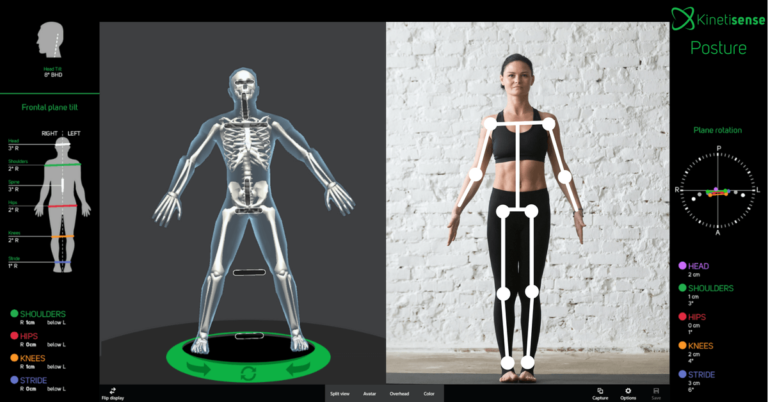7 Ways Functional Movement Analysis in Langley Helps Correct Common Movement Mistakes
What is Functional Movement Analysis?
Functional movement analysis in Langley is an assessment that evaluates how your body moves during everyday activities and exercises. Rather than focusing solely on strength or endurance, this type of analysis examines mobility, stability, coordination, and muscle balance. By observing your natural movement patterns, physiotherapists can pinpoint areas that are prone to stress or inefficiency, offering a clearer understanding of potential movement errors.
Why Functional Movement Analysis Matters
Many movement mistakes happen unconsciously. Whether it’s poor posture at a desk, incorrect lifting technique, or imbalanced athletic training, these errors can accumulate over time and lead to pain or injury. Functional movement analysis in Langley allows physiotherapists to detect these issues early, helping you move more efficiently and safely. Identifying and addressing movement errors can improve everyday function, enhance athletic performance, and reduce the risk of chronic discomfort.

Looking to recover faster and get back to doing what you love? At Physio For Performance in Langley, our expert physiotherapists use cutting-edge techniques tailored to your needs.
Don’t wait—book your appointment today and experience a personalized approach to restoring your function and mobility!
How the Assessment Works
During a functional movement analysis, a physiotherapist observes fundamental movements such as squats, lunges, pushes, and pulls. They also assess joint mobility, core stability, and overall alignment. The goal is to identify weaknesses, restrictions, or compensatory patterns that may contribute to inefficient or harmful movement. Following the assessment, the therapist develops a tailored plan of exercises, stretches, and corrective strategies to address these findings.
1. Spotting Muscle Imbalances
One of the first areas functional movement analysis in Langley targets is muscle balance. Weak or overactive muscles often force the body to compensate, which can lead to strain elsewhere. Physiotherapists can identify these imbalances and prescribe exercises to strengthen underused muscles while relaxing those that are overactive. Correcting these imbalances helps you move more naturally and reduces the risk of injury.
2. Enhancing Joint Mobility
Limited joint mobility is a frequent source of movement errors. For example, restricted ankle movement can negatively affect squatting or running mechanics. Functional movement analysis in Langley highlights such limitations, enabling physiotherapists to suggest targeted mobility exercises. Improved joint range of motion allows for smoother, safer, and more efficient movement patterns.
3. Strengthening Core Stability
A strong, engaged core provides a foundation for all movement. Weak core muscles can result in compensatory patterns like excessive spinal movement or poor balance. Functional movement analysis assesses how your core stabilizes your body during various motions. Targeted core strengthening exercises enhance posture, protect the lower back, and support more controlled movement.
4. Correcting Posture and Alignment
Poor posture is a common contributor to movement mistakes. Issues such as slouched shoulders, forward head posture, or uneven weight distribution can disrupt efficient movement. Functional movement analysis in Langley examines alignment during standing, walking, and functional exercises. Physiotherapists can then recommend corrective exercises, stretching routines, and daily adjustments to help restore optimal posture.
5. Refining Fundamental Movements
Even basic movements like squats, lunges, and reaches can reveal inefficiencies when performed incorrectly. Functional movement analysis in Langley allows physiotherapists to observe these patterns closely. Guidance on proper technique ensures safer execution, reducing strain on joints and soft tissues while enhancing overall performance.
6. Personalizing Rehabilitation Plans
For individuals recovering from injuries, movement errors can slow recovery or create new issues. Functional movement analysis in Langley helps physiotherapists identify compensatory movements and design rehabilitation programs that target the root cause of problems. This approach ensures recovery exercises are practical while addressing underlying movement errors to prevent recurrence.
7. Preventing Future Injuries
Functional movement analysis isn’t just about correcting current mistakes; it’s a proactive approach to injury prevention. By addressing muscle imbalances, joint restrictions, and inefficient patterns, individuals can move more safely and confidently. Long-term strategies, informed by the assessment, often include exercise routines, stretching, and posture improvements that help maintain mobility and reduce the risk of future injury.
Making the Most of Your Assessment
To get the full benefits of functional movement analysis in Langley, it’s essential to work with a qualified physiotherapist. Following through with prescribed exercises and adjustments is key to correcting movement errors. For individuals in the Langley area, Physio For Performance offers comprehensive functional movement assessments designed to identify mistakes and create practical, effective strategies for improved movement and overall physical function.







